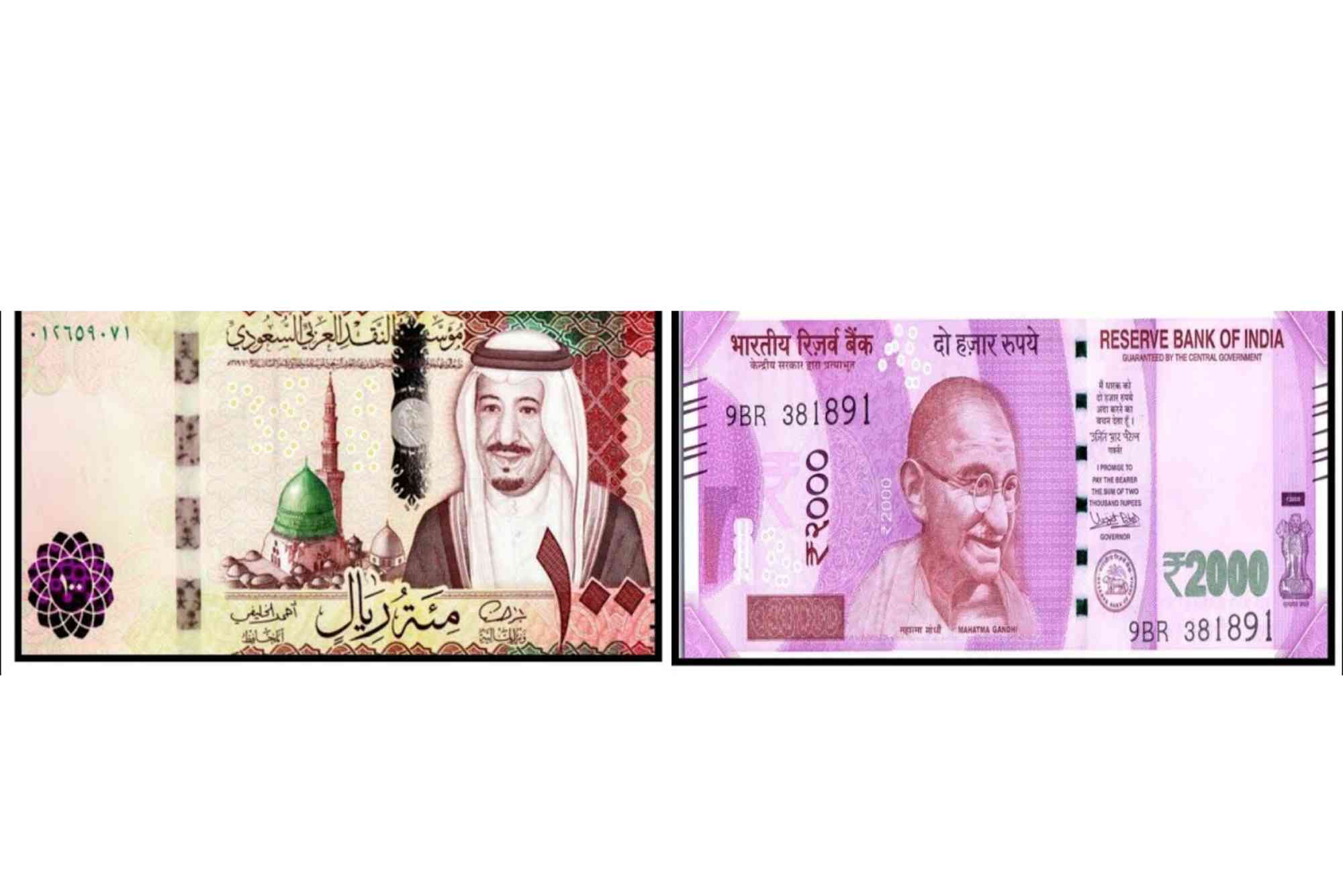KSA to India Exchange Rate: Opportunities for Crypto Conversion
The flow of money between Saudi Arabia and India has always been strong. With millions of Indians working in the Kingdom of Saudi Arabia (KSA), remittances play a vital role in supporting families back home. The exchange rate KSA to India is more than just numbers; it impacts household budgets, investment decisions, and financial strategies. As the global economy shifts and digital currencies enter the picture, there is now growing interest in using cryptocurrency as an alternative to traditional money transfers. This article explores how the exchange rate works, what factors influence it, and how crypto conversion can open up new opportunities.
Understanding the Exchange Rate KSA to India
The exchange rate KSA to India refers to how many Indian Rupees (INR) one Saudi Riyal (SAR) can buy. For instance, if 1 SAR equals 22 INR, then 1000 Riyals convert to 22,000 Rupees. For overseas workers, every decimal point matters because it directly affects the final amount received by families in India.
Why the Exchange Rate Matters for Workers and Families
Saudi Arabia is home to more than two million Indian expatriates, making it one of the largest remittance corridors in the world. Small fluctuations in the exchange rate KSA to India can significantly change the money available for education, housing, or healthcare. Families often monitor daily exchange updates before receiving transfers to maximize the value of each Riyal.
Factors That Influence the Exchange Rate
The value of SAR against INR is not constant. It depends on global oil prices, inflation rates, and the strength of the US Dollar since the Saudi Riyal is pegged to the dollar. Political stability, trade relations, and economic reforms in both countries also affect this rate. For example, when India faces inflation, the Rupee tends to weaken, giving more value to Riyals. Conversely, if the Indian economy grows strong, the Rupee can appreciate, making transfers less valuable in terms of Rupees.
Traditional Money Transfer Methods Between KSA and India
Historically, expatriates have relied on banks, exchange houses, and international money transfer operators. These services remain popular because they are regulated and trusted. However, they often come with hidden fees, longer processing times, and exchange rate markups.
Banks and Exchange Houses
Banks in KSA provide direct remittance services to India, but the costs can be high. Exchange houses, often located in busy districts, offer slightly better rates and faster services, but they still include transaction charges. For large sums, even small charges add up, making workers lose a significant portion of their hard-earned money.
Digital Remittance Services
In recent years, digital transfer platforms have gained popularity. These allow users to send money through apps with lower fees and competitive exchange rates. Still, the system depends on intermediaries and bank regulations, which sometimes delay transfers during peak times.
Opportunities in Crypto Conversion
Cryptocurrency is now creating new opportunities for cross-border transactions. Instead of transferring money through banks or exchanges, individuals can convert Riyals into crypto like Bitcoin or stablecoins and then exchange them for Rupees in India.
How Crypto Can Improve Transfers
Using crypto can bypass intermediaries, reduce transaction costs, and speed up the process. For example, a worker in Riyadh can buy a stablecoin pegged to the US Dollar, send it digitally to family in India, and have them convert it into Rupees through local exchanges. This process can take minutes compared to the days required by banks.
Lower Fees and Better Transparency
One of the biggest advantages of crypto conversion is cost savings. Traditional transfers often charge both sender and receiver. Crypto transactions, however, can cost a fraction of a dollar regardless of the amount. Additionally, blockchain technology provides transparency, allowing both parties to track transactions in real time.
Access to Stablecoins
Volatility is one concern with cryptocurrency. However, stablecoins like USDT or USDC offer a solution. Pegged to the US Dollar, these coins maintain consistent value. Workers in KSA can convert Riyals into stablecoins and send them securely, knowing the value will remain stable when converted into INR.
Risks and Considerations of Using Crypto
While the opportunities are promising, there are challenges to consider before shifting fully to crypto for remittances.
Regulatory Uncertainty
India and Saudi Arabia are still developing clear laws around cryptocurrency. While digital assets are not completely banned, regulations can change quickly. Users must ensure compliance to avoid legal issues.
Conversion Hurdles
Not every recipient in India has access to crypto exchanges or digital wallets. For families in rural areas, converting crypto to Rupees may be difficult. Until adoption becomes widespread, crypto transfers may require some technical knowledge.
Volatility Concerns
Although stablecoins minimize risk, not all users are aware of safe practices. If someone uses Bitcoin or Ethereum, sudden price swings can reduce the value of transfers. Choosing the right coin and platform is essential for security.
Comparing Traditional Transfers and Crypto
Traditional transfers are familiar, regulated, and widely accessible. However, they are slower and more expensive. Crypto transfers are fast, cheap, and borderless but require digital literacy and trust in new technology. For many workers, the solution may be a hybrid approach — using banks for large official transfers and crypto for smaller, quick payments.
Future of the Exchange Rate KSA to India and Digital Finance
The remittance corridor between KSA and India is expected to grow as more Indians migrate for work. At the same time, digital finance, including blockchain technology, is evolving. Governments are exploring Central Bank Digital Currencies (CBDCs), which could transform cross-border transfers even further. If adopted, this could combine the stability of fiat currency with the efficiency of crypto.
The Role of Fintech
Fintech startups in both countries are experimenting with solutions that integrate fiat and crypto transfers. This could bridge the gap for users who want low-cost services without navigating complex crypto exchanges. Over time, competition between banks, fintech, and crypto platforms may create better rates for workers and families.
Practical Tips for Maximizing Value
When sending money from KSA to India, individuals should monitor the daily exchange rate, compare different transfer platforms, and consider using stablecoins for urgent payments. Educating family members on safe digital wallet use can also make crypto transfers smoother. By balancing security with innovation, workers can ensure they get the most out of their earnings.
A Smarter Way to Send Money
The exchange rate KSA to India will always play a crucial role in remittances. For millions of workers, every Riyal counts, and finding efficient transfer methods is essential. Traditional banks and exchanges remain popular, but crypto conversion offers new opportunities for faster, cheaper, and transparent transactions. As regulations develop and technology advances, crypto could become a mainstream solution for remittances between KSA and India.
If you are working in Saudi Arabia and supporting family in India, stay informed about exchange rates and explore crypto solutions carefully. The right strategy can save money, provide convenience, and ensure your family receives maximum value. Now is the time to take control of your remittance journey and make smarter financial choices.
FAQs
What is the current exchange rate KSA to India?
The rate fluctuates daily, but generally 1 Saudi Riyal equals around 22 Indian Rupees. Always check updated rates before sending money.
Is crypto legal in KSA and India for remittances?
Both countries allow limited use of crypto, but regulations are still evolving. It is important to use licensed platforms and stay updated on policies.
Why do workers prefer crypto over traditional transfers?
Crypto transfers are cheaper, faster, and provide transparency. They also allow users to bypass high fees charged by banks and exchanges.
Can my family in India receive crypto directly?
Yes, if they have a digital wallet or account on a crypto exchange. Otherwise, they need to convert crypto into Rupees through trusted services.
Are stablecoins safer than Bitcoin for remittances?
Yes. Stablecoins are pegged to the US Dollar, making them less volatile. They are a popular choice for cross-border transactions.




